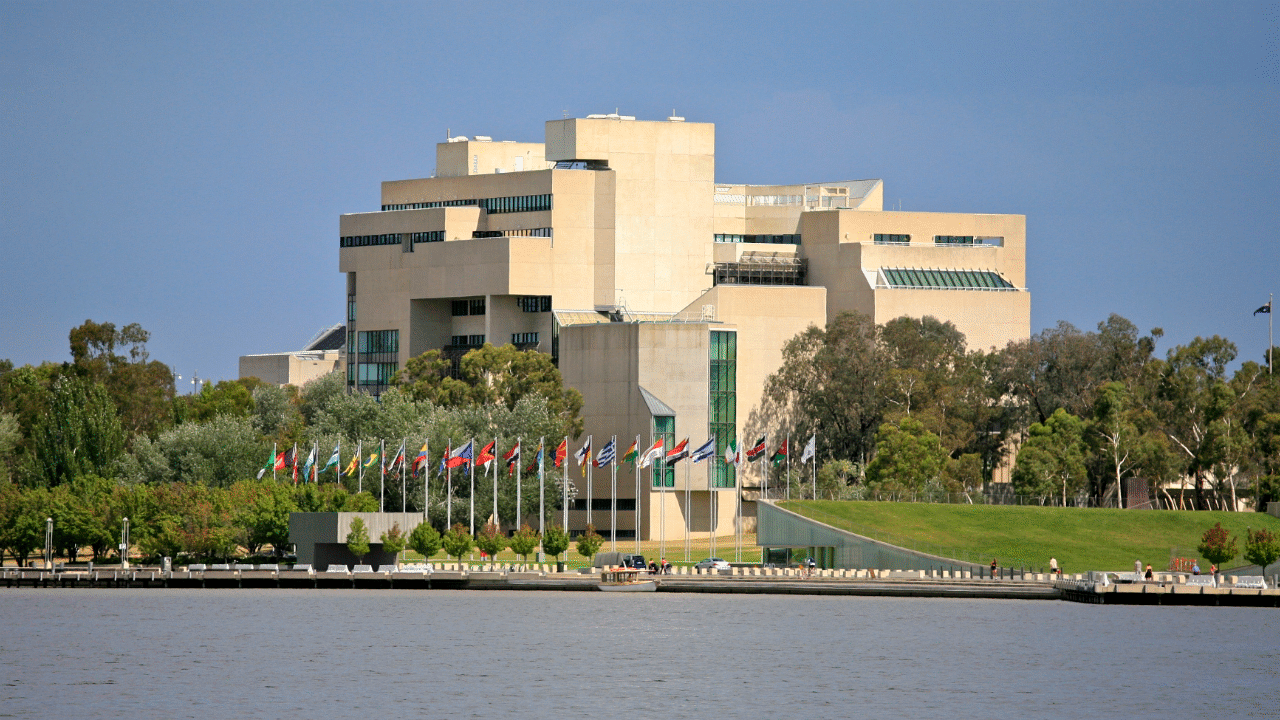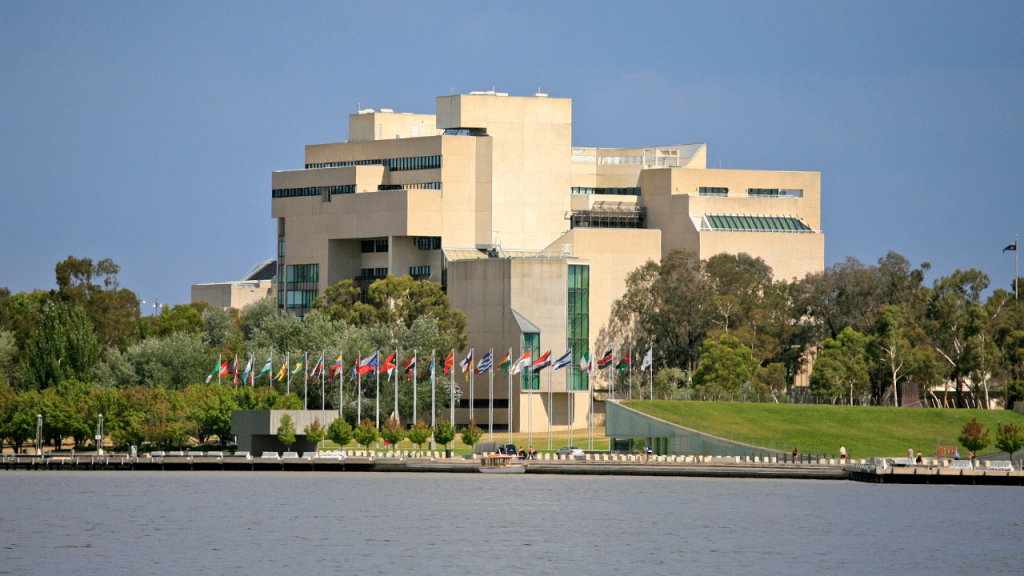
Australian High Court overturns a citizenship-stripping law but upholds another
By Mike Head
On the same day this week, Australia’s highest court struck down as unconstitutional a law allowing the federal government to strip citizenship from a person purely by executive decree, but in another case upheld a similar power.
The twin decisions on November 1, relating to legislation passed with bipartisan support by the Labor Party and the Liberal-National Coalition, show the continuing political threat to the right to citizenship, and all the basic social and democratic rights that are meant to go with it.
Without citizenship, no other political right currently exists, including to vote, reside, travel and not be detained without trial, and the same goes for access to employment, health and welfare services.
The threat to these rights remains after the High Court overturned laws that blatantly violated the limited protection of the 1901 Constitution, which forbids any form of punishment, which includes cancellation of citizenship, from being imposed without a court order.

Despite striking down one citizenship-stripping law, the court rubber-stamped another, along with the proposition that governments have the power to revoke citizenships of people who have been convicted of criminal offences, as long as a judge is involved in the process.
The two rulings shed further light on the levels to which successive governments, Labor and Coalition alike, have gone to throw overboard constitutional limits to revoking citizenships, particularly since the 2001 declaration of the “war on terrorism” and the US-led invasions of Afghanistan and Iraq.
The first case was that of Abdul Nacer Benbrika, who was convicted in 2009 of charges of directing an alleged terrorist organisation. He has remained behind bars ever since, on a “continuing detention order,” despite completing his 15-year prison term.
After fighting all the way to the High Court to retain the power to revoke citizenships without judicial rulings, the Albanese Labor government immediately declared, with the backing of the Coalition, that it would keep Benbrika locked up and introduce “tough new laws” to get around the High Court verdict.
Deputy opposition leader Sussan Ley offered to support any legislation, provided it was endorsed by the intelligence agencies. She declared: “Now, if this legislation is approved by our national security agencies, we will grant bipartisanship sight unseen.”
The Benbrika ruling, by a six-to-one majority on the court, was the second by the supreme court to strike down executive citizenship-stripping laws. It followed a similar ruling in June 2022 involving the use of a different, but parallel, power against Delil Alexander, an Australian-born citizen who was jailed in Syria after allegedly joining Islamic State.
The Labor government strenuously defended the power to cancel citizenships, even though it was obvious from the court’s reasoning in the Alexander case that the judges would rule it unlawful.
Moreover, both provisions in the Australian Citizenship Act declared invalid—section 36D in Benbrika’s case and section 36B in Alexander’s case—were known in legal circles to be unconstitutional in 2015 when they were introduced by the previous Coalition government with Labor’s backing.
Section 36D gave the home affairs mhinister the power to “cease” a citizenship if a person was convicted and jailed for six years or more on any of an array of terrorism-related or “politically-motivated” offences. Section 36B went further, empowering the minister to do so, without any conviction at all, if the person was deemed by their alleged conduct to have “repudiated their allegiance” to Australia.
On November 1, the majority judges said the same logic applied to both provisions. The Constitution “exclusively” entrusted punishment for criminal guilt to the courts. They found it was beyond the powers of parliament to give an “arbitrary power” to the executive government to punish Australian citizens.
But the judges said the outcome of the Benbrika case could be overcome “by the simple and common legislative expedient of requiring executive application or certification as a precondition to a court making an order for cessation of citizenship.”
Although both Benbrika and Alexander were selected as initial political targets, as alleged or convicted “terrorist” figures, and demonised in the corporate media as such, they are the tip of the iceberg of a wider threat to citizenship rights.
According to figures released under Freedom of Information legislation by the Home Affairs Department last year, 59 people have had their citizenship revoked by governments since 2007, when the first such powers were introduced.
So far, citizenship-cancellation powers have been restricted to dual citizens—those holding another citizenship. They can be deported to another country without violating international treaties against making someone stateless. But the High Court rulings do not prevent any extension to sole citizens.
In the other November 1 ruling, the court upheld the power of the home affairs minister to use another section of the Australian Citizenship Act (section 34) to revoke the citizenship of Phyllip Jones, now 72, in 2018. At that time, Jones had been an Australian citizen for 29 years and had lived in Australia continuously for 52 years.
Jones’ citizenship was revoked on the basis that he had committed a criminal offence in Australia before becoming a citizen. Jones, originally from the UK, has been incarcerated in immigration detention since 2022.
By six-to-one, the judges declared that the constitutional doctrine of not giving a minister the power to punish anyone had an exception—that the punishment also served a “legitimate non-punitive purpose.” In Jones’ case, the majority said the “legitimate purpose” was “the protection of the integrity of the naturalisation process.”
The danger to democratic rights is underscored by threats that have been made to charge people with offences, such as “giving material support” to terrorism, for opposing the Israeli genocide in Gaza. Accusations are being made that denouncing the massacres of Palestinians constitutes assisting Hamas, which has been listed by successive governments as a “terrorist organisation” under Australia’s sweeping “counter-terrorism” legislation.
Under section 36D—the powers of which the Labor government has vowed to retain by “harsh new laws”—people could be “ceased” as citizens if convicted of any of a long list of offences. These included “advocating terrorism,” assisting an “enemy” of Australia, and leaking security information. Also on the list, as amended in 2020, were offences that were expanded in the 2018 “foreign interference” legislation—treason, treachery, sabotage and espionage.
Because of the far-reaching definition of terrorism, a person could lose their citizenship for supporting the right of people in Gaza to resist the Israeli onslaught. The extended “foreign interference” crimes could affect anti-war and anti-government activists.
This vast battery of laws, which define “terrorism” in the broadest possible terms, also demolish other fundamental democratic rights, creating sweeping powers for police raids, spying, detention without charge and decades-long terms of imprisonment, as demonstrated by Benbrika’s plight.
Benbrika, a 62-year-old former aviation engineer, who became a citizen in 1998, has been in custody for 18 years since his arrest in Melbourne in 2005. He was convicted of being a member of, and directing the activities of, an unnamed terrorist group, some members of which had been recorded speaking about performing acts of violence to coerce the Australian government to withdraw forces from Iraq.
He completed his sentence in November 2020 but has been kept behind bars under a court-issued continuing detention order sought by then Home Affairs Minister Peter Dutton. Such orders, which can be renewed indefinitely, allow prisoners to be kept in custody for up to three years if they are assessed as posing a continued danger to the community.
In June, the government told a court that Benbrika did not pose a risk of conducting a terrorist attack but was a risk of “radicalising” others in the community. The continuing detention order is due to expire in December, but the current Home Affairs Minister Clare O’Neil revoked Benbrika’s visa, so that he could be taken into indefinite immigration detention.
With Labor’s help, the previous Coalition government also introduced an unprecedented series of laws allowing detention without trial. These include control orders and preventative detention orders, as well as continued detention orders. Under Victorian state law, prisoners can alternatively be subjected to an extended “supervision order” for up to 15 years, with a possibility of being renewed for a further 15 years.
Together, Labor and the Coalition have imposed more than 120 packages of “terrorism” legislation since 2001 to bolster the powers and resources of the state apparatus. As the response to the US- and Australian-backed barbarism in Gaza shows, these laws can be extended to any opposing views and activities.
[This article was originally published by WSWS here on November 4, 2023]

